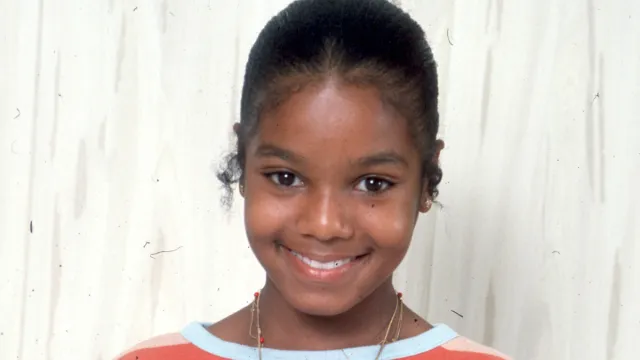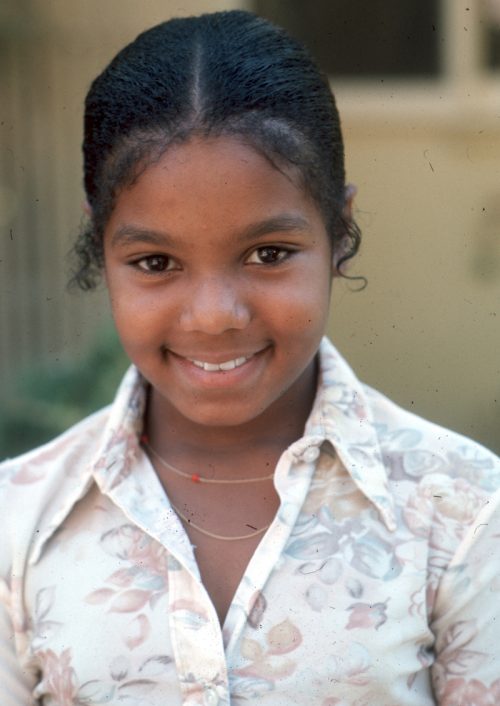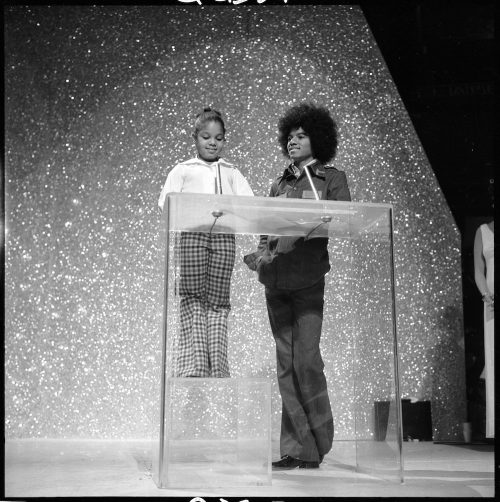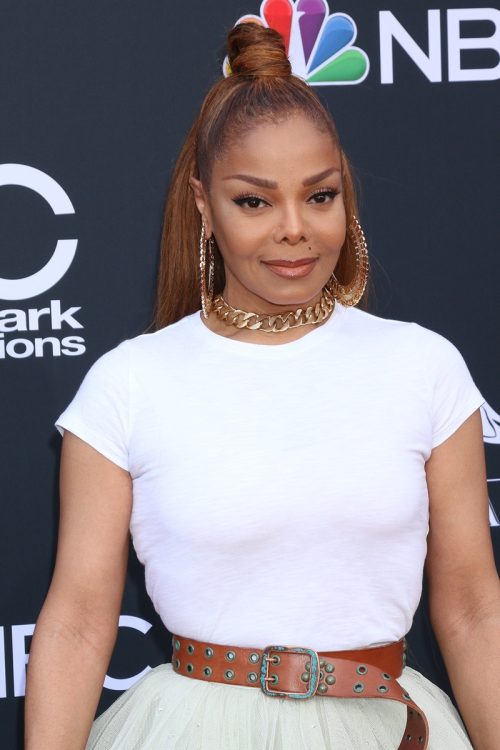Janet Jackson Says “Good Times” Producers Told Her to “Slim Down” at 10 Years Old

When Janet Jackson joined the cast of Good Times in 1977, she was already familiar with the entertainment industry, celebrity, and the importance of her image. Part of a show business family, her older brothers had first come to fame in The Jackson 5 years earlier. But when Jackson was cast on the sitcom at age 10, she got a taste of the dark side of show business herself. And it didn’t take long for her to feel the effects.
Jackson has revealed that she was told by adults on set to lose weight when she got the role of Penny on the show’s fifth season. She also said that she had her chest bound to cover up the fact that she was entering puberty. All of this contributed to body image issues that she would continue battling throughout much of her life.
Read on to see what the now-56-year-old shared about being body shamed on Good Times, as well as her brother Michael poking fun at her weight.
READ THIS NEXT: Michael Jackson Said That Prince Was “Mean and Nasty” to Him.
She was told to “slim down” as a child actor.
In her 2011 self-help book True You: A Journey to Finding and Loving Yourself, Jackson writes that she was told to lose weight before she began filming Good Times.
“I really didn’t want to do the show,” she writes (via Today). “I didn’t want to be away from my family. And being on television only added to my negative feelings about my body.”
She continues, “Before production began, I was told two things: I was fat and needed to slim down, and because I was beginning to develop, I needed to bind my breasts. In both cases the message was devastating—my body was wrong. The message was also clear—to be successful, I had to change the way I looked.”
She felt humiliated.

Jackson explains in her book that having her chest bound was particularly traumatic for her.
“[E]ach day of shooting, I went through the ordeal of having wide strips of gauze tied across my chest to hide the natural shape of my breasts. It was uncomfortable and humiliating,” the Grammy winner explains.
She also said that she kept her emotions a secret from her family. “I didn’t know what to do with my feelings of fear and embarrassment,” she writes. “So I hid them. I was ashamed of them. After all, I was an actress, and my job was to please others—writers, directors, and producers—and to entertain the audience. There was no room for personal confusion.”
For more celebrity news delivered right to your inbox, sign up for our daily newsletter.
She said the show changed the way she saw herself.

Jackson also opened up about her experience on Good Times in her 2022 Lifetime documentary, Janet Jackson.
“I did Good Times, and that’s the beginning of having weight issues and the way I looked at myself,” she said (via People). “I was developing at a very young age and I started getting a chest, and they would bind it so I would look more flat-chested.” She added, “I’m an emotional eater, so when I get stressed or something is really bothering me, it comforts me.”
Her brother’s teasing didn’t help.

Also in the documentary, Jackson talked about her brother Michael teasing her in regards to her weight. She said he would call her names including “pig, horse, [expletive], or hog, cow.”
She explained, “It wasn’t out of malice on his part at all. Brothers tease sisters, sisters tease brothers, and it was just fun and funny. But, then there was somewhere down inside that would hurt when you have someone say, ‘You’re too heavy,’ even if it was out of love, it affects you.”
She remembers being aware of her looks at an early age.

In her book, Jackson also writes about an early memory of comparing her appearance to someone else: her oldest sibling, Rebbie Jackson.
She said that she can remember being six years old and noticing a framed picture from when Rebbie graduated high school.
“At that moment, this thought came to me: When I grow up, will I ever be as pretty as Rebbie?” Jackson writes. “That’s what I was hoping for. I know that I genuinely admired my sister’s beauty, but looking back I can also see that by comparing myself to her, I felt inadequate.”
She also writes that she remembered feeling out of place in her all-white school: “Some of the kids did things that weren’t intended to be mean, but they were funky and made me feel less-than. I remember them wanting to touch my hair because it wasn’t straight—it was different.”
She explains in the book that she now knows that being unique is important and something that everyone should appreciate about themselves without making comparisons.
“At age six, though, I didn’t have the slightest clue about my uniqueness,” Jackson writes. “All I knew was that my sister was the most beautiful woman in the world—and I’d never come close to her beauty. By age six, I was already feeling bad about myself.”